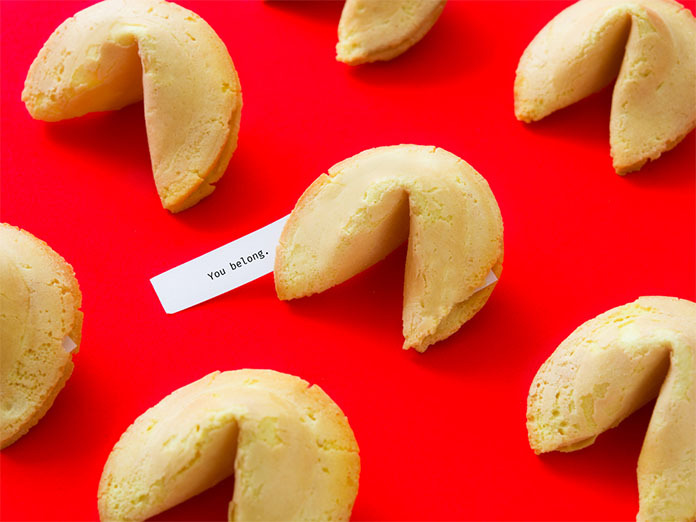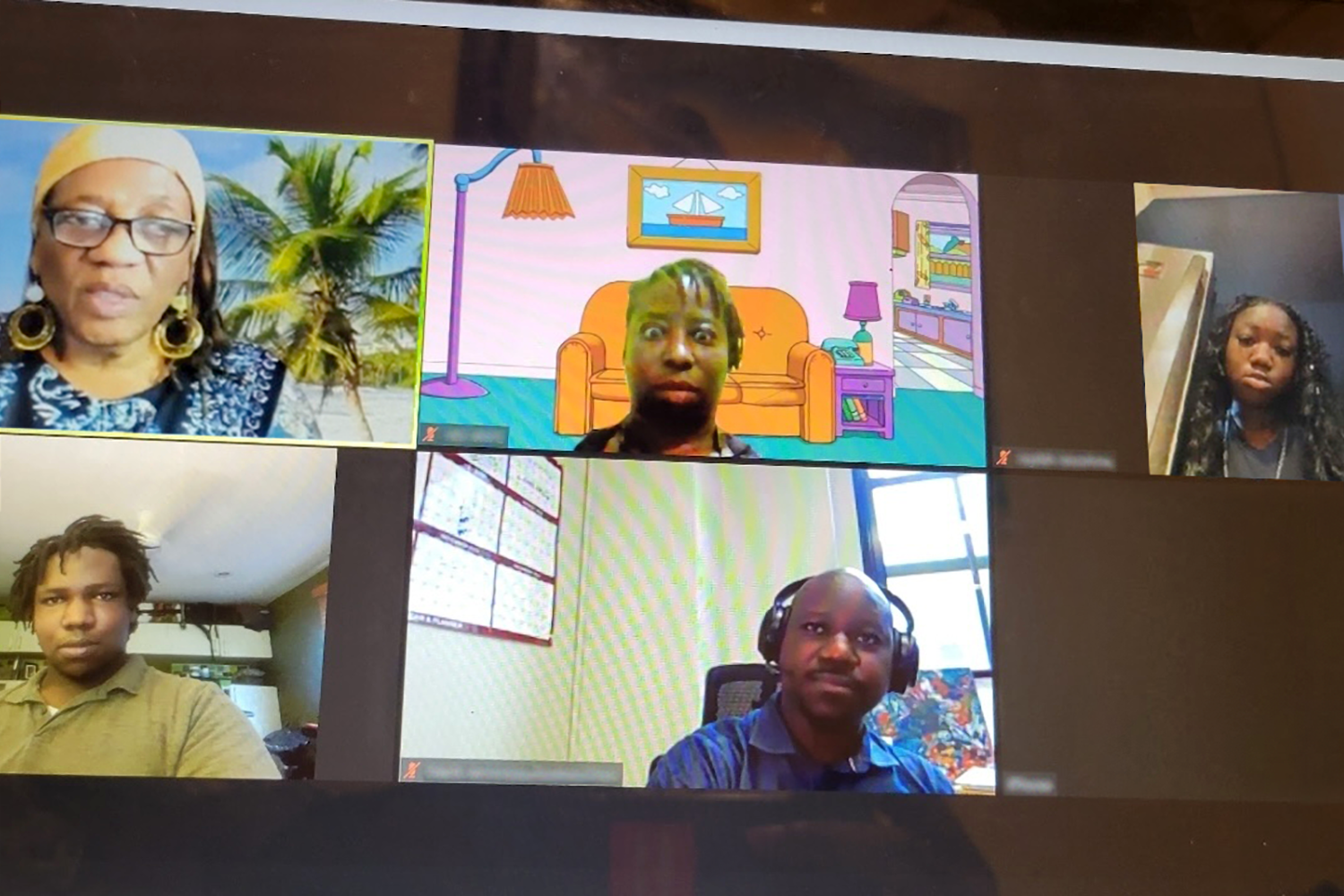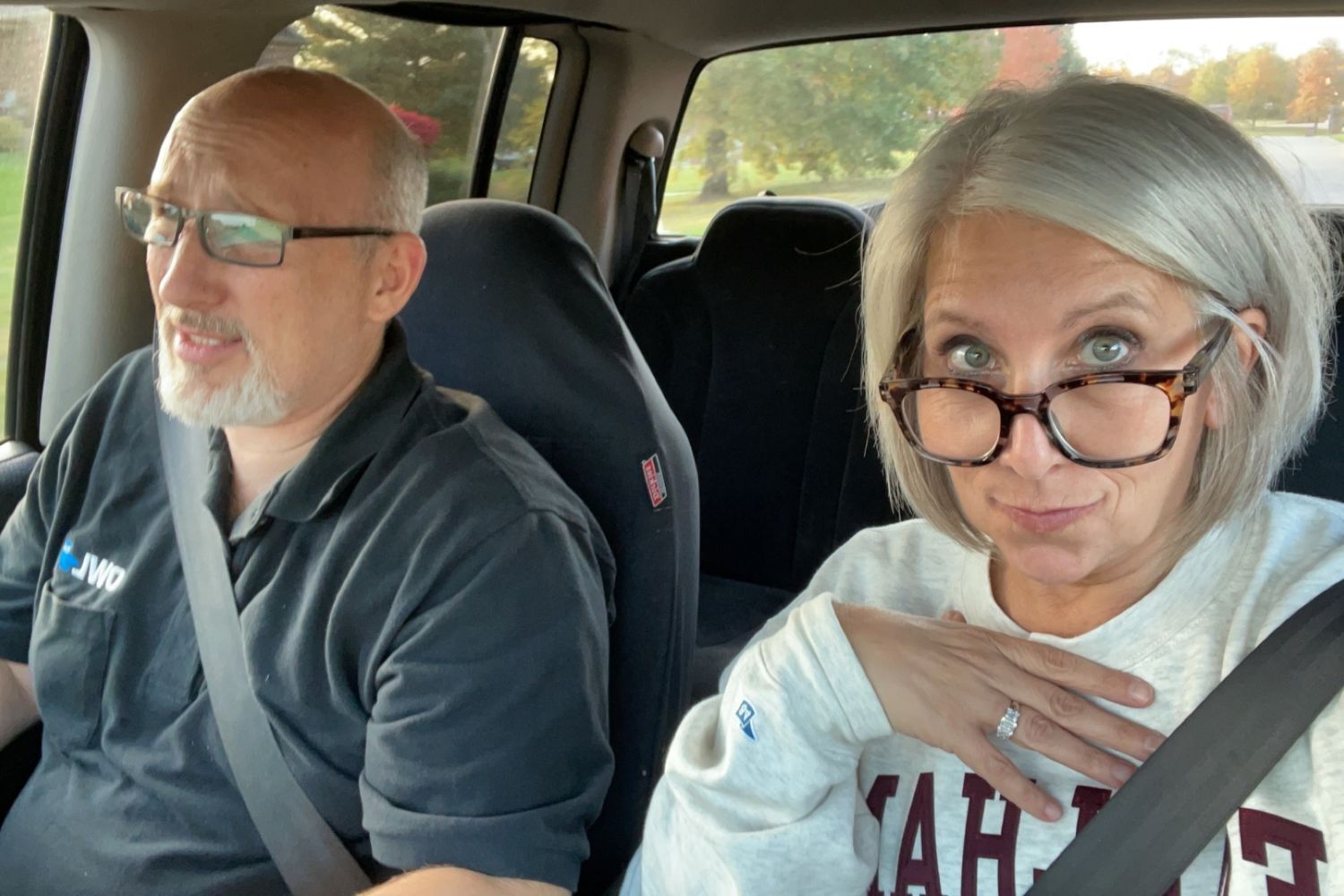
Asian Heritage Month: When you don’t feel like you belong
As an immigrant Asian American, I lived between two worlds, belonging to neither. It was through listening to my anger, the kindness of Americans, and a little bit of Orange Chicken, that led me to self acceptance and a feeling of belonging on my terms.
“Are you a Chinese turkey?” a little white boy asked me as I stood in line for the bus at the end of the school day. I was 6 years old and it was my first day of school in America after immigrating from Hong Kong to the suburbs of Philadelphia, Pennsylvania. I wondered if I should respond, as I didn’t know the word turkey at the time. I thought it might be rude to not respond and so I used my deductive skills to figure it out. In my limited English, I knew he was asking me a question, and whether I was a Chinese something. What exactly that something was, I did not know. But I am Chinese, so perhaps the answer is “yes”? And so, I said — “Yes.”
The little boy, surprised at my answer, laughed uproariously with his friend. “She said, yes! You are a Chinese turkey!” I guessed that I didn’t respond correctly, as I could tell they were teasing me. Later I asked my older sister in Cantonese what a turkey was, and she was annoyed. “A turkey is like a chicken! You said, ‘Yes, you’re a Chinese chicken!’” Not a great start to my life in America.
Thus began my vicissitude relationship with my newly adopted country. This small interaction influenced much of my first half of life. I never knew how people were going to react to me as a Chinese American. Was I going to be laughed at and called a Chinese turkey? What if I said the wrong thing? How am I supposed to act in this new country?
Despite the rocky start, I was excited to move to America. At the time, I flunked first grade and carried a lot of shame for doing so. Leaving for America meant a fresh start. There, no one will know I flunked. At 6 years old, I can start over! And start over I did. I was lucky enough to have a sweet and patient first grade teacher, Mrs. Perkins, who coddled me with grace, — a complete 180 from my strict, disciplinarian teacher in Hong Kong who glared at me with beady, disapproving eyes through her thick glasses.
Instead, Mrs. Perkins would greet me with a smile each morning and in our first parent-teacher conference she validated the speed in which I was learning English, telling my parents — “And she probably understands what we’re saying right now.” I smiled in recognition. In Hong Kong, I seldom received praise from any adults, given my status as a first-grade flunkee — I only heard complaints about being not good enough. Here, I beamed and felt safe. At that moment, I was totally sold on making America my new home.
But still, that first year was dicey and a formidable time that set the foundation of what it meant for me to be an Asian in America. In that first year, there was Nicole who asked me to play during recess, despite my language imparities, but then there was Andrea (not her real name), who invited everyone in the class to her birthday party except for me. Acceptance or rejection from other Americans was unknown; I never knew how others would react to me.
Being the angry Asian girl that I needed to be
Nowadays I don’t think about it much, but for much of my life, I was an ‘angry Asian girl.’ Growing up in a predominately white and Jewish neighborhood, our class was made up of ~10% Asian kids, most of which were Korean. Per the stereotype, my friends were mostly Asian and Jewish.
With the exception of a few incidents, looking back, my classmates were pretty A-OK people. But as an anguished, emo teenager who scorned everything and everyone, I conspired with my Asian (and Jewish) friends around our mutual misery of being outsiders in a foreign land. My anger wasn’t only towards Americans, but also feeling like foreigners back ‘home’ in Hong Kong. As a kid, we’d visit Hong Kong during summer break and I became labeled as the American cousin with all the stereotypes: undisciplined, only eats burgers, inappropriate dressers in crop tops and Daisy Dukes, and not very smart. My aunties would ask me, “Do you remember how to use chopsticks?” as if chopsticks were outlawed in the U.S. and our brains melted, forcing us to use forks like a caveperson.
As a kid, we’d visit Hong Kong during summer break and I became labeled as the American cousin with all the stereotypes: undisciplined, only eats burgers, inappropriate dressers in crop tops and Daisy Dukes, and not very smart.
Even though in America we ate the Chinese food my mom cooked every night and seldom went out for American food. There were a few exceptions: the occasional Olive Garden or Old Country Buffet, (where I finally got to try “stuffing” which was disappointing after the hype from Stouffer’s Stove Top commercials, which glorified what amounted to dried bread cut up into tiny pieces. I actually do like stuffing now, but for a while, I totally didn’t get it.)
The author, Bonnie Ho, at 14 years old standing outside an apartment building in Philadelphia’s Chinatown.
Despite the anguish, I longed to be American. All the cultural conflicts between child and parent in the recent popularity of Asian American movies and TV has been affirming and real. I absolutely wanted ‘white people lunch’ and was indoctrinated into American pop culture despite my parents’ chagrin (as was poignantly portrayed on TV series, Fresh off the Boat). I preferred America’s values of equality, freedom, and niceties (even if fake at times), over Chinese values of obligation, respecting your elders (without any respect back) and pushiness.
I love you, America, why won’t you love me back?
As angry as I was, I’ve always been incredibly grateful for immigrating to the United States. There were times in my career when I led important projects and thought, “Not so bad for a first-grade flunkee.” I always felt like if I stayed in Hong Kong, I would have amounted to being a call girl, a drug addict, or best case scenario, “elevator driver” — the occupation my family would tease me about becoming after flunking first grade.
If it weren’t for people like Mrs. Perkins or other Americans in my life who showed they care and provided kindness when I most needed it, I never would have moved past the depression and low self esteem; I would have never thrived.
So, to me, America is truly the land of opportunity. Some Americans snark at this idea, which is easy to lose sight of when there is divisiveness and a screwed up economy that’s making things hard for those of us who aren’t Jeff Bezos. But money ain’t what I’m talking about — if it weren’t for people like Mrs. Perkins or other Americans in my life who showed they care and provided kindness when I most needed it, I never would have moved past the depression and low self esteem; I would have never thrived.
This is what makes the uptick in anti-Asian hate and the killings of six Asian women in Atlanta in 2021 so heartbreaking, reminding me of that old anger, which now arises more as grief — the core emotion behind most challenging feelings. As an immigrant, it broke my heart. Not only for the women who perished and their families, but that feeling of being rejected by the country I adopted and thought had adopted me. I had fallen in love with America, and it was like a kick in the pants for them to attack us. I love America, so why won’t America love me back? We all yearn to be loved and accepted. The anti-Asian hate brought up that grief again: as Asian Americans, if we don’t belong here, then where do we belong?
When I accept myself, no one can make me feel like I don’t belong
“One’s dignity may be assaulted, vandalized, cruelly mocked, but it can never be taken away unless it is surrendered.“ -Martin Luther King, Jr
That feeling like I don’t belong is a core wound for me — and I wonder if many other immigrants feel the same way. As I journeyed through healing this wound, I discovered that the old adage ‘if you want to be loved, you gotta love yourself first’ to be apt. And so, if I want to feel like I belong and feel accepted, it is up to me to accept myself.
Because once I accepted myself, I no longer cared what the haters thought and learned that our power is ours to give away or keep for ourselves. We can choose whether we want to let others make us feel like we don’t belong, or we can take our power back by grounding into our rights, as well as our love — for this country, for ourselves. To me, this is true empowerment.
I needed to be angry for a time, because my anger showed me how others treated me was not OK. My anger flagged to me to take action — just like our collective anger pushes us to fight for social justice causes. There’s what needs to be done on the bigger world stage, and then, there is my own personal empowerment and sanity. When I don’t process the anger and instead stay in a perpetual state of outrage, I can’t accept myself; I keep myself in pain and suffering by believing I don’t belong — is that really the reality?
How Panda Express helped me accept myself
Back in 2016, I made a public admission: I like Panda Express. For most of my life, I scoffed at American-Chinese food, deeming it, “Chinese food for white people,” even though I looked forward to the sample at the food court. “You can’t pass up a free sample!” was my excuse — when really, deep down, I wanted to march over to the counter and order some of that sweet deep-fried goodness that is Panda Express’s Orange Chicken.
To me, it wasn’t authentic. Panda Express, PF Changs, and ‘Asian Fusion’ restaurants beg the question: are you Chinese or are you American? To me, Orange Chicken, General Tsao’s Chicken, and Beef with Broccoli was definitely not Chinese food. Authentic Chinese food is pigs feet with peanuts, steamed fish with the head still on, congee rice porridge with a thousand year old egg. But that orangey goodness beckoned me. My betrayal began as most do: in secrecy. I would get a combo order at the food court to-go, and eat it by myself at home in dim lights where no one was watching.
But one day, I was at the food court in Union Square in San Francisco and I craved Panda Express. I stood in front contemplating whether I should be “out and proud” by getting some Orange Chicken, brazenly eating it in the food court, or should I be a “good Asian” and go to the ramen place next door. I took the plunge and got myself a combo of Orange Chicken and Beijing Beef, and ate it awkwardly in the food court.
That night, I wrote a Yelp review commemorating the event. “I became an American citizen over 20 years ago. Have voted in every presidential election since I was able to. But today, I am a real American because I am admitting… I like Panda Express.”
I know it must sound silly, but this admission helped me begin to accept myself as an Asian American. My lack of Panda-Express acceptance was reflecting this limiting belief that it’s not OK to be “Asian American” and that you gotta be one or the other. This idea of — “Are you Chinese or are you American?” — I couldn’t accept that the mix of being both Asian and American is a beautiful thing. To recognize and honor the ingenuity and perseverance of my Chinese brethren to come to a new country and create a fusion of cultures resulting in this sweet and saucy concoction is miraculous and wonderful.
I still love authentic Chinese food, but I’ve realized my own authenticity isn’t about being Chinese or American. My authenticity has no identity, but rather the expression of my heart that’s not colored by the rules of culture. My personality is a little bit Chinese, and a little bit American — but my true self? That goes beyond ethnicity.
If I don’t feel like I belong, it’s simply not for me, and that’s OK
Let’s face it, there are still times when I feel like I don’t belong. But instead of judging that not-belonging feeling as an objective reality about the ways they can judge me (for being Asian, being woo-woo, being a woman, etc.), I realized that perhaps, this place is just not my jam. This place just ain’t my peoples, and that’s OK — not everything has to be for me.
If I walk into a country club, it’s likely I won’t feel like I belong. It doesn’t matter the reason — maybe it’s because I don’t relate to the bourgeois lifestyle. It could be that there are no other Asians there. It could be that they give me judge-y looks. And even then, I don’t give a crap because honestly, I don’t want to be there either. (Clearly I’m judging them too!)
We don’t have to be everything to everybody, and everybody doesn’t have to be our “thing.” There are plenty of places where I do feel like I belong — and much of it doesn’t have to do with ethnicity. I like places that are open, kind and creative, and I have the power to choose where I wanna hang out, which I know wasn’t necessarily the case at a time in American history, but when I’m present, I can see how lucky I am.
Despite it all, Asian-Americans are unfortunately living in a world where our rights as people of color, women and diversity is being threatened more than ever in my lifetime, and justice must be restored. But in my own personal everyday life, mindfulness and choice keeps me in equanimity and in empowerment. I am in my power when I choose the company I keep, the places I go, and where I belong. And if you don’t accept me, then that’s just perfectly fine by me. There are plenty of people who do accept me, the most important of which is myself.




